"Everyone knows, only the Ministry doesn't know"
In recent days, the difficulty of the 2025 high school graduation exam in English and Math has become a hot topic in society. On social networking forums, professors and doctors of Mathematics have discussed this year's Math exam.
Dr. Tran Nam Dung, Vice Principal of the Gifted High School (Ho Chi Minh City National University) shared that the difficulty of this year's Math exam is reflected in the ability to think, reason, read, understand the nature of mathematics, and model mathematics. Some questions overuse this issue while they should go straight to mathematics. This makes candidates spend a lot of effort to understand the problem.
Therefore, candidates think that the exam is difficult, but it is difficult because of the length, not because of the knowledge. Many questions that give context need to be moderated.
 |
Candidates taking the 2025 high school graduation exam Photo: HOANG MANH THANG |
Dr. Tran Nam Dung also said that for practical questions, the “real” content is very little, it is mainly just a cover. Specifically, the combinatorial problem is a strange reality, although in terms of thinking, it is quite good for developing mathematical modeling ability.
Prof. Dr. Phung Ho Hai, former Director of the Vietnam Institute of Mathematics (Vietnam Academy of Science and Technology) informed that in 2017, when he participated in drafting the 2018 general education program for Mathematics, the Ministry of Education and Training had just implemented a multiple-choice test model for Mathematics in the national high school exam (the results of which were used for university admission).
“Our opinion is that no matter how good the program is, it is meaningless if the assessment is not done well,” said Mr. Hai. Mr. Hai listed some requirements that need to be met in the Math program, such as the main qualities and general abilities; and specific abilities.
He said that on the one hand, he still opposes the organization of multiple-choice tests (including the “short answer” format, which essentially involves filling in answers) for an exam whose results can be used for university admission. Because that test cannot objectively and comprehensively assess students’ mathematical thinking and reasoning abilities - one of the five specific abilities of Mathematics identified in the 2018 program. This distorts the training of this ability, affecting the quality of university students - something that has been affirmed in the form of “everyone knows but the Ministry does not know”.
On the other hand, he believes that, in the context that the exam still has to do the existing tasks, the 2025 high school exam has many commendable improvements, which contribute to making the exam "more useful" for each student - this is something he has been concerned about for decades.
Mr. Hai gave his opinion to the Ministry of Education and Training's Exam Board that they should not force a purely mathematical problem to be developed in a "realistic" language - that is not the way to help students develop their "mathematical modeling" ability. Mathematical modeling problems should originate from specific questions and problems that need to be solved in reality.
Only native speakers can understand.
Sharing with reporters, Ms. NTDung, an English exam preparation teacher in Hanoi, affirmed that this year's high school graduation exam in English is much different from the 2006 program. Specifically, it is heavy on vocabulary, with about 25 questions that focus on vocabulary. In particular, the reading passage requires filling in phrases and vocabulary that are very difficult and the complexity of each question is very high.
According to Ms. Dung, SAT and IELTS test takers are used to this, but in the school curriculum, if students do not study on their own, they will be overwhelmed. There are many words that candidates cannot do if they only translate the meaning. For example, the word greenwashing (artificially polishing the image of the environment, also translated as "greenwashing"). This is an environmental term, so candidates who are not interested in this field will have difficulty understanding it, although they can still guess the meaning based on the context.
Nguyen Quynh Anh, a third-year student majoring in English at a university in Hanoi, shared that students at B2 and C1 levels (European reference framework, equivalent to 5.5 - 6.5 IELTS and 7.0 - 8.0 IELTS) were also out of breath taking the test this year. Having to deal with 40 questions of this length and complexity in 50 minutes is a big challenge, even for students with a good English foundation or who have achieved high scores in international certificates.
On the fanpage named Hanoi Expats, since June 29, there has been a topic: “The English graduation exam in Vietnam is currently causing a lot of controversy. If you are a native English speaker, try taking the test and recording a video of your thoughts”, which has received a lot of responses. Among them, someone wrote: “I can choose the correct answer, but I can’t explain why. Basically, you need to be a native speaker to understand these questions correctly. It’s very difficult”.
Many other opinions also affirmed that if you are not a native English speaker, it will be difficult to complete this year's exam.
The general opinion of English teachers is that the score range is average.
Prof. Dr. Nguyen Ngoc Ha, Head of the Examination Board, Ministry of Education and Training, said that this year's graduation exam was not created according to the banking process (but a library of exam questions was created). This year, there is a big difference compared to last year's exam preparation: Randomness in the exam preparation process; last year, the exam matrix was announced in advance to candidates.
Source: https://tienphong.vn/vi-sao-ra-de-thi-kho-nhu-len-troi-post1756575.tpo












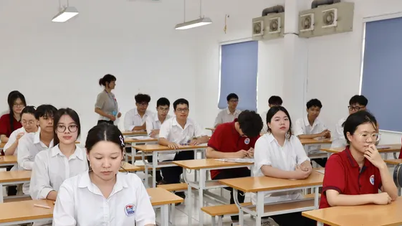



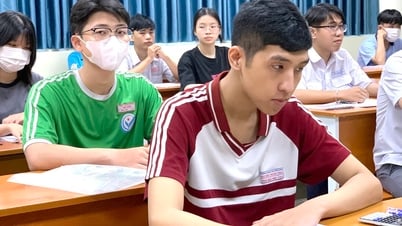


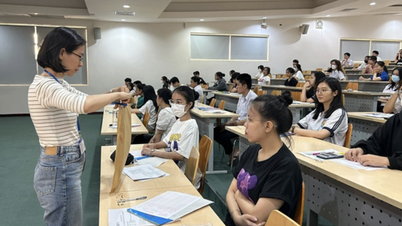


































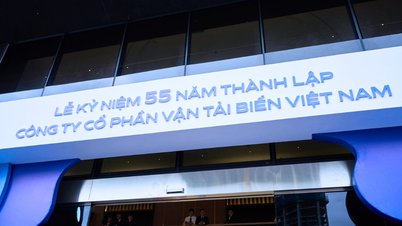









![[Photo] General Secretary To Lam attends the launch of 3 digital platforms serving the implementation of Resolution No. 57-NQ/TW](https://vphoto.vietnam.vn/thumb/402x226/vietnam/resource/IMAGE/2025/7/2/d7fb7a42b2c74ffbb1da1124c24d41d3)




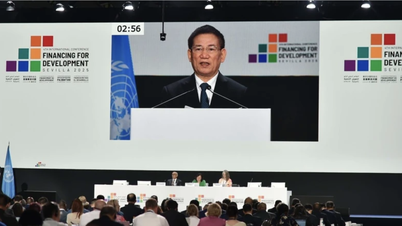































Comment (0)